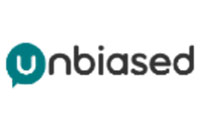Poor customer service, security concerns, mis-selling, and other reasons to complain about your pensions provider

Getting top-quality advice from your pensions provider is key. And if this doesn't happen, you need to exercise your rights...
We often think of pensions as something to “set and forget”, assuming our money will quietly build up in the background.
But what happens when your provider lets you down?
It might feel daunting to make a formal complaint, but pension providers are regulated businesses and held to strict standards.
If something isn’t going as you’d like, you’re well within your rights to speak up.
Here are six legitimate reasons to complain to your pension provider.
Tax relief, investing, State Pension: the biggest pension myths
1. Inadequate investment performance
We all understand that financial markets can go up and down.
But if your pension fund has been underperforming for years, it’s time to investigate.
Your provider should be able to explain your investment choices, what you’re getting for your fees and how your fund compares to competitors.
Poor performance can erode your future retirement income – and the earlier you spot it, the better. In some cases, just highlighting underperformance can push your provider to improve its offering, or at least help you move to a better fund.
2. Poor communication or customer service
Ever been kept on hold for 45 minutes? Or sent a crucial request only to be met with radio silence?
Pension companies are legally required to offer clear and timely information.
This includes annual statements, performance updates and responses to questions or complaints.
If paperwork is riddled with jargon, or you're routinely left chasing for updates, this is unacceptable.
You're paying fees for a service, so you deserve better.
And if you're close to retirement, poor communication can cause genuine distress.
In cases like these, a complaint could result in an apology, a change in the business’s process – or even compensation for financial loss.
Cost of basic retirement falls, but ‘moderate’ retirement expenses keep rising
3. Security concerns
We all expect our money and data to remain safe.
Pension pots are increasingly targeted by fraudsters, and poor online security can leave your retirement savings vulnerable.
Many scams include requests to transfer your pension or release funds.
Remember, you can’t access your money before the age of 55, rising to 57 from April 2028.
Any requests to do so are almost certainly fraudulent.
If your provider isn’t doing enough to protect your account, you should raise it as a matter of urgency.
Problems might include:
- Unexplained password resets
- Data breaches
- Repeated issues accessing your account
In serious cases, you can escalate the issue to the Financial Ombudsman Service or even the Information Commissioner’s Office, particularly if sensitive personal data is involved.
4. Mis-selling or bad advice
If you were talked into transferring out of a top-performing fund in favour of one with high fees, then you may have been mis-sold.
This has been a massive area of concern in recent years.
Common red flags include:
- Poor explanation of risks
- Not being told about exit fees or ongoing charges
- Feeling pressured into signing up quickly
If any of this sounds familiar, it's absolutely worth making a formal complaint.
|
PROMOTION
|
||
|
The best pensions & SIPPs 2025: Morgan Lloyd, Quilter and more
5. Lack of diversification
No matter how well your fund is performing, you should keep an eye on how your company allocates investments.
A well-managed pension should spread your money across a mix of asset types, regions, and sectors.
This way, you can reduce the risk of losses during times of market volatility.
If you’re in a default fund that hasn’t been reviewed for years, or you're in a scheme with limited investment options, consider raising a grievance with your provider.
Any company should offer diversified choices that align with your risk level and retirement goals.
6. Not enough ethical options
More and more savers now want their pensions to reflect their values – whether that means avoiding fossil fuels, backing companies with strong human rights records, or ensuring investments comply with Islamic principles.
Unfortunately, not all pension providers have kept pace with this demand.
If your workplace pension or private company doesn’t offer ESG-friendly or Shariah-compliant funds, this is a perfectly valid grievance.
Even if they can’t change the fund lineup immediately, enough complaints can push providers to expand their range or improve the information they give.
Final thought
You shouldn’t need to be a financial expert to get good service from your pension provider.
If something doesn’t sit right – whether it’s poor communication, weak performance, or a mismatch with your values – don’t just hope for the best.
This is your money, your retirement, and your right to be heard.
Comments
Be the first to comment
Do you want to comment on this article? You need to be signed in for this feature
